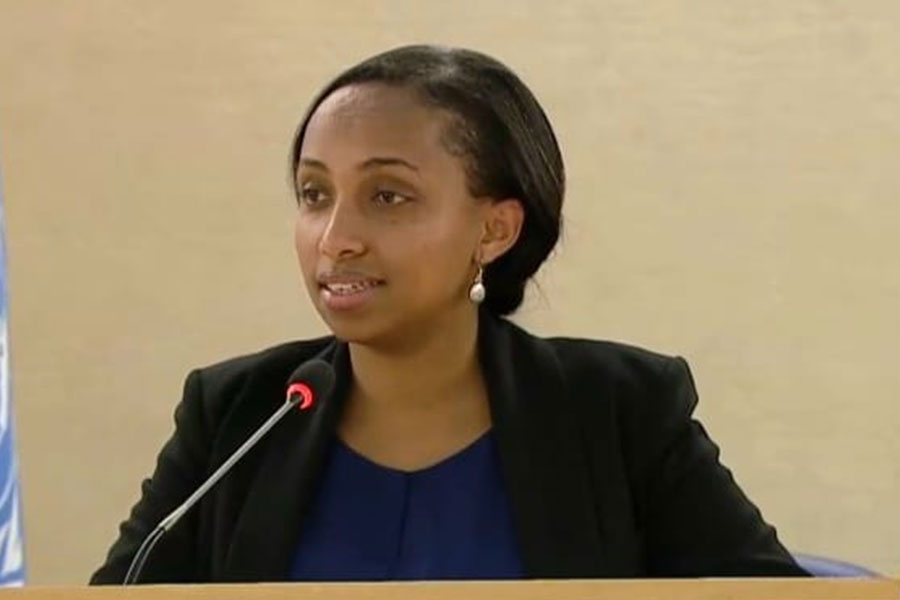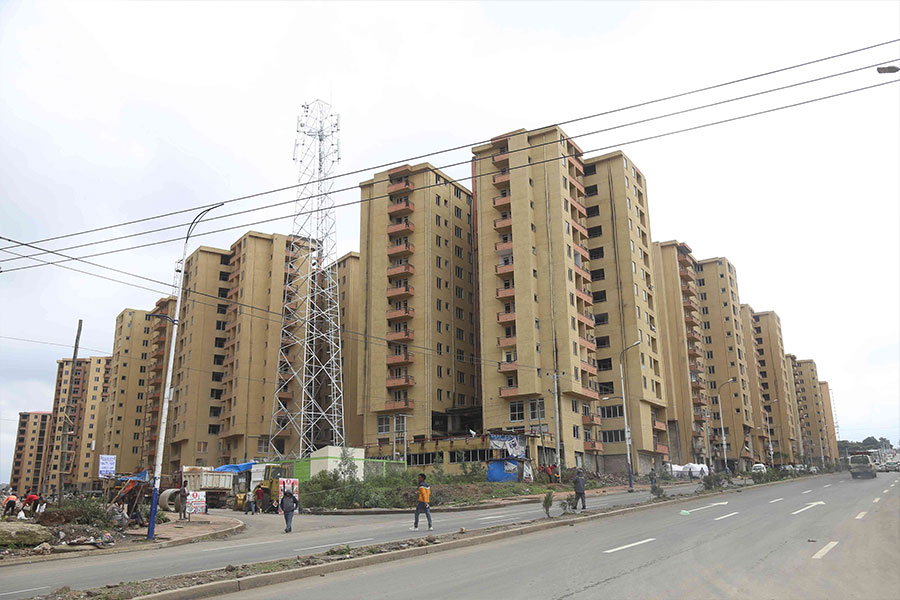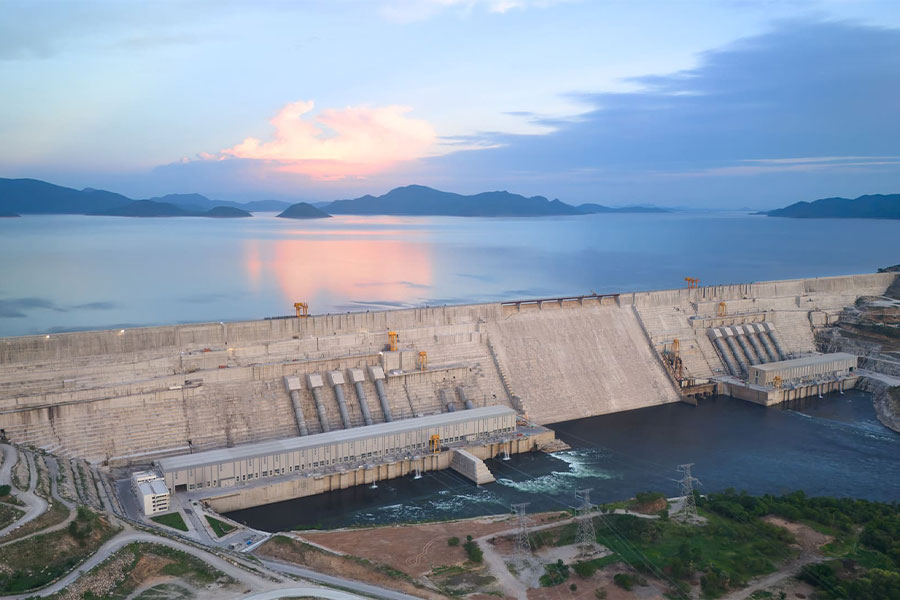
Editorial | Mar 30,2019
Oct 12 , 2024
By Eden Sahle
I recall watching a historian passionately defend the origins of one of the ancient castles in Ethiopia. What caught my attention was the analogy he used to assert that it was built by local residents. He mentioned the absence of toilets as a point of evidence arguing that relieving oneself outdoors was the norm. It got me thinking, as we still see individuals defecating in public spaces, seemingly unfazed by onlookers.
During my pregnancy, I found myself frequently in need of a restroom. I usually left malls horrified by their obscene facilities. The emphasis on clean and hygienic toilets is glaringly absent in public spaces. Lack of lighting, soap, and clean facilities, coupled with contaminated water reservoirs, makes visiting public toilets a distressing experience. Offices and shops may be bright and clean, but stepping into their toilets reveals a contrast.
Surprisingly, customers seem unconcerned. Many public toilet users I encountered quickly used the facilities and left. It is alarming to think about the germs they might spread while greeting others or touching various surfaces. I have witnessed individuals dipping their unwashed hands into water tanks that resemble dirty river water, merely to wet their hands, then drying off their clothes. In public restrooms and hotels, well-dressed individuals with impeccable looks neglect the importance of cleanliness for their own sake and the well-being of others.
In some places, an initial thrill at finding running water and soap quickly turns to disappointment when I discover the soap is overly diluted, rendering it ineffective. It raises the question of why even some of the rated hotels neglect to provide basic amenities like diaper-changing areas for children.
My awareness of the dire state of hygiene began during my university days. Unlike my experiences in schools, I quickly learned that clean toilets and basic sanitation were nonexistent in these institutions. My friend and I started bringing our soap and water, a habit I maintained after graduation, as I found the world outside equally lacking in hygienic facilities.
Property owners neglect the state of toilets, despite their critical role in public health. Three commercial building owners I spoke to around Bole area claim that providing soap and water is too costly, fearing that it will lead to increased usage. They do not consider sharing hygiene costs with their tenants as an alternative.
I leave my supplies outside, washing my hands while being watched by strangers as if I am performing a circus act. When I offer my soap and water, their laughter turns to anger. Some insist they have not touched anything that requires washing while others argue that simply wetting their hands is sufficient.
Equally perplexing is why, in the 21st century, many are unaware that they can prevent illnesses simply by keeping their hands clean. I have observed people skipping handwashing even when soap and water are available. “It’s the clean ones who get sick,” is the usual response I get, a lingering threat that did not disappear even after COVID-19. I read a study published in 2019 that indicates Helicobacter pylori (H.pylori) infections are prevalent and recognized as a major cause of gastrointestinal diseases in Ethiopia. Sanitation is one of the reasons for transmission.
While it is commendable that the city administration mandates public toilets in restaurants and malls, simply having them without proper facilities only exacerbates the ongoing public hygiene crisis. Public spaces should provide necessary toiletries to help eliminate preventable diseases.
PUBLISHED ON
Oct 12,2024 [ VOL
25 , NO
1276]

Editorial | Mar 30,2019

Fortune News | Apr 28,2025

Radar | Nov 30,2019

Agenda | Jul 23,2022

Radar | Jun 12,2023

Fortune News | Aug 23,2025

Viewpoints | May 03,2024

Viewpoints | May 25,2019

Radar | Oct 14,2023

Fortune News | Apr 03,2023

Photo Gallery | 155000 Views | May 06,2019

Photo Gallery | 145267 Views | Apr 26,2019

My Opinion | 135137 Views | Aug 14,2021

Photo Gallery | 133729 Views | Oct 06,2021

Dec 22 , 2024 . By TIZITA SHEWAFERAW
Charged with transforming colossal state-owned enterprises into modern and competitiv...

Aug 18 , 2024 . By AKSAH ITALO
Although predictable Yonas Zerihun's job in the ride-hailing service is not immune to...

Jul 28 , 2024 . By TIZITA SHEWAFERAW
Unhabitual, perhaps too many, Samuel Gebreyohannes, 38, used to occasionally enjoy a couple of beers at breakfast. However, he recently swit...

Jul 13 , 2024 . By AKSAH ITALO
Investors who rely on tractors, trucks, and field vehicles for commuting, transporting commodities, and f...

Sep 13 , 2025
At its launch in Nairobi two years ago, the Africa Climate Summit was billed as the f...

Sep 6 , 2025
The dawn of a new year is more than a simple turning of the calendar. It is a moment...

Aug 30 , 2025
For Germans, Otto von Bismarck is first remembered as the architect of a unified nati...

Aug 23 , 2025
Banks have a new obsession. After decades chasing deposits and, more recently, digita...

Sep 15 , 2025 . By AMANUEL BEKELE
The Grand Ethiopian Renaissance Dam (GERD), Africa's largest hydroelectric power proj...

Sep 13 , 2025
The initial budget in 2011 was 80 billion Br, but this figure swelled to a revised cost of 240 billion Br by 2024, a challenge that was exac...

Sep 13 , 2025 . By BEZAWIT HULUAGER
Banks are facing growing pressure to make sustainability central to their operations as regulators and in...

Sep 15 , 2025 . By YITBAREK GETACHEW
The Addis Abeba City Cabinet has enacted a landmark reform to its long-contentious setback regulations, a...